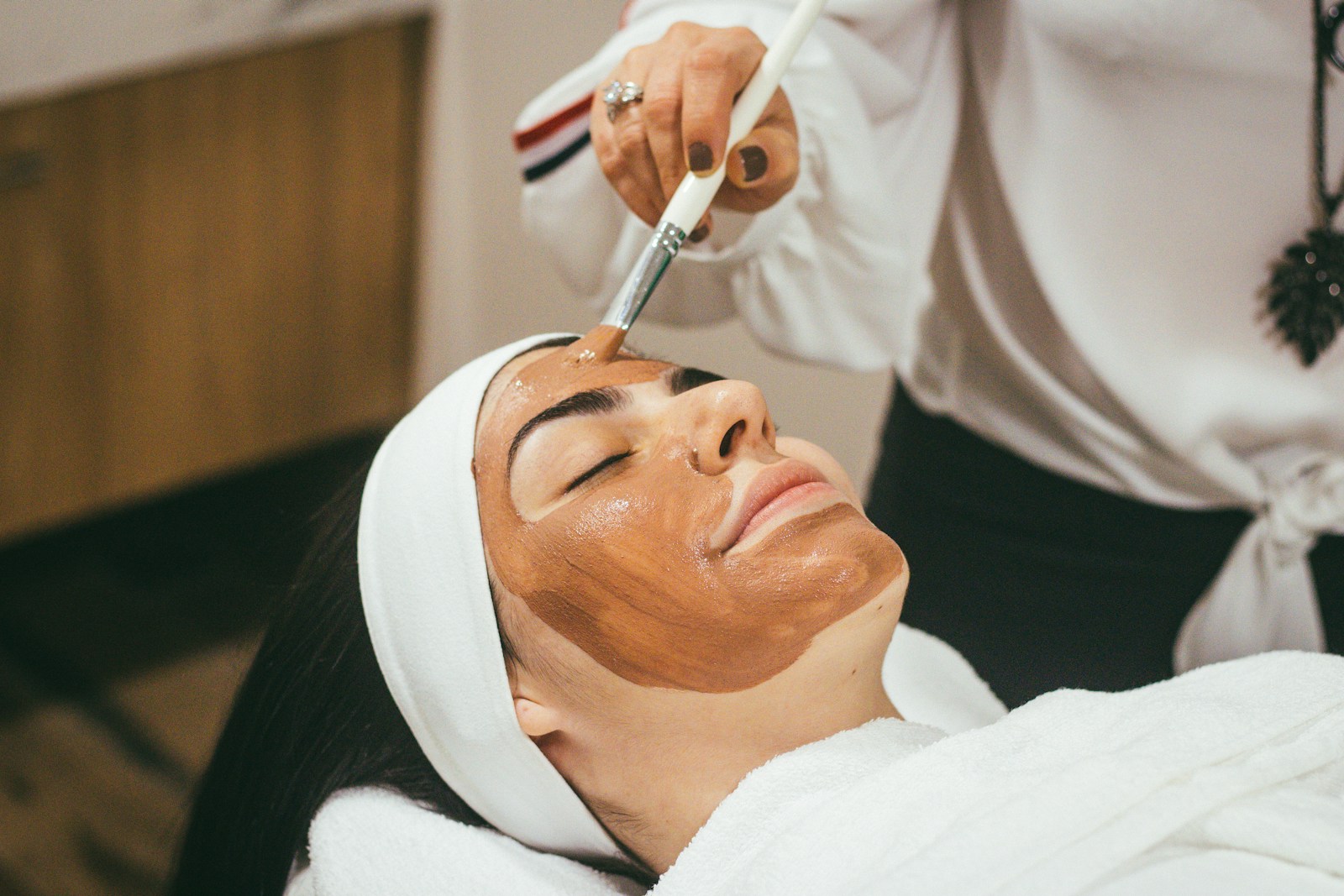Tips for enhancing your skincare routine often include adding Vitamin C, a powerful antioxidant that offers numerous benefits for your skin. This vitamin helps to brighten your complexion, reduce the appearance of fine lines, and protect against environmental damage. Incorporating Vitamin C into your regimen can be simple, but it’s important to choose the right product and apply it correctly for maximum effectiveness. In this post, you will discover the role of Vitamin C in skincare and practical tips for its usage, ensuring your skin stays vibrant and youthful.
The Biochemical Marvel: How Vitamin C Works in the Skin
The Antioxidant Defense: Neutralizing Free Radicals
Your skin faces relentless oxidative stress from environmental aggressors like UV radiation and pollution. Vitamin C plays a vital role as an antioxidant, actively seeking and neutralizing these free radicals before they can cause damage. Studies have demonstrated that topical application of Vitamin C can significantly decrease markers of oxidative stress, leading to a noticeable improvement in skin tone and texture. The unique ability of Vitamin C to recycle other antioxidants, such as Vitamin E and glutathione, further amplifies its protective effects.
By incorporating Vitamin C into your skincare regimen, you provide your skin with robust defenses against photodamage and premature aging, ensuring a more youthful and radiant appearance. Whether you’re looking to diminish the signs of sun damage or simply enhance your skin’s overall vitality, this powerhouse ingredient can be a game changer.
Collagen Synthesis: The Key to Youthful Skin
Vitamin C is important for the synthesis of collagen, a protein responsible for skin’s structural integrity and elasticity. As you age, the natural decline in collagen production leads to wrinkles, sagging, and an uneven skin texture. By stimulating fibroblast activity, Vitamin C boosts collagen synthesis, helping to restore skin’s firmness and resilience. In fact, research indicates that topical Vitamin C can enhance collagen creation by influencing gene expression related to collagen pathways.
Integrating Vitamin C into your daily skincare routine may greatly affect your skin’s longevity. Regular use not only fortifies the skin barrier but also helps diminish the visibility of fine lines. Throughout your skincare journey, opting for formulations that deliver stable Vitamin C compounds can optimize efficacy, leading to the revitalization of your complexion over time.
Uncovering Misconceptions: Debunking Myths About Vitamin C in Skincare
The “More is Better” Fallacy
The idea that applying higher concentrations of Vitamin C will yield better results is a common misconception. While it might seem logical, the skin can only absorb a certain amount, beyond which additional application may lead to irritation rather than enhanced benefits. Products containing around 10% to 20% Vitamin C tend to be effective for most skin types, balancing potency with tolerability. Anything above this range might not only cause sensitivity but can also lead to disrupted skin barriers, precipitating further skin issues.
Instead of assuming that piling on Vitamin C will enhance its effectiveness, focus on finding a formula that works for your specific skin type. This might mean opting for a lower concentration if you have sensitive skin or choosing a higher potency if your skin can handle it. Listening to your skin is necessary, as signs of redness or discomfort signal that the product may not be suitable for your needs.
Understanding pH and Stability Issues
The stability of Vitamin C in skincare products is heavily influenced by the pH level of the formulation. Pure ascorbic acid, the most potent form of Vitamin C, requires a pH level below 3.5 to remain stable and effective. Many commercial products, however, use higher pH levels, which can compromise the Vitamin C’s potency. If you’re unsure about the effectiveness of a product, check for indicators like the pH level or consider formulations that utilize stable derivatives, such as ascorbyl glucoside or sodium ascorbyl phosphate, which can maintain efficacy at higher pH levels.
Inconsistent stability not only affects the antioxidant properties but can also lead to discoloration, making the product less visually appealing and potentially ineffective. When opting for a Vitamin C product, look for those packaged in opaque containers to minimize exposure to light and air, both of which can hasten degradation. Always check the expiration date and consider how long you’ve had the product, as older formulations may not deliver the promised results.
Maximizing Benefits: Practical Tips for Incorporating Vitamin C into Your Routine
To truly harness the benefits of Vitamin C in your skincare regimen, consider a multi-faceted approach that enhances both effectiveness and usability. Start by assessing your personal skin type, as this will play a significant role in how Vitamin C affects your complexion. Incorporate the ingredient gradually into your routine to avoid overwhelming your skin, especially if you’re sensitive. Engage with your routine by rotating products effectively and layering them for optimal results. Here are some practical tips to keep in mind:
- Choose a format that aligns with your skincare goals, whether it’s a serum, cream, or mask.
- Store Vitamin C products in a cool, dark place to prevent oxidation and maintain potency.
- Follow up with a quality moisturizer to lock in hydration post-application.
- Utilize sunscreen during the day when using Vitamin C, as it complements photoprotection.
Any of these steps can amplify your experience with Vitamin C, ensuring that you get the utmost benefit from this transformative ingredient.
Choosing the Right Formulations: Serums, Creams, and More
Navigating the vast selection of Vitamin C formulations can be daunting, but understanding your skin’s needs simplifies the process. Vitamin C serums are highly concentrated and typically contain potent forms like ascorbic acid. They can deliver targeted treatment directly to the skin, making them ideal if you’re aiming for rapid results against pigmentation or signs of aging. On the other hand, if your skin leans towards dryness, consider Vitamin C creams that offer additional moisturization to combat dehydration alongside antioxidant protection.
You may also explore Vitamin C-infused oils that boast velvety textures, making them perfect for dry or combination skin types. Formulations that combine Vitamin C with other beneficial ingredients—like hyaluronic acid or vitamin E—can further enhance your experience by promoting hydration and boosting efficacy. Always review the ingredient list for added benefits when selecting a product.
Dosage and Timing: When and How to Apply
The effectiveness of Vitamin C often hinges on the right dosage and timing of application. Generally, a few drops of serum applied once or twice daily can suffice, but personal adjustments may be necessary based on your skin’s tolerance. Mornings tend to be the most advantageous time to apply Vitamin C, as it can work in tandem with your sunscreen to shield your skin from environmental stressors throughout the day. Keep in mind that formulation can vary; some Vitamin C products are tailored for use both day and night, so always refer to specific product guidelines for optimal results.
If you prefer a morning routine, cleanse your face, apply Vitamin C on slightly damp skin, and follow up with a broad-spectrum sunscreen. For evening applications, the process is similar, but you might reserve it for days when your skin feels particularly dull or in need of revitalization. Always alternate your products to prevent irritation and allow your skin to adjust.
Utilizing Vitamin C consistently in your routine, particularly during the morning, maximizes its protective benefits while minimizing the likelihood of irritation. Regular use will lead to a more vibrant and luminous complexion while providing crucial antioxidative protection against premature aging.
The Synergy Effect: Combining Vitamin C with Other Key Ingredients
Vitamin E and Ferulic Acid: The Power of the Trio
Combining Vitamin C with other antioxidants like Vitamin E and Ferulic Acid creates a synergistic effect that amplifies the skin benefits. When used together, this powerful trio enhances the stability and effectiveness of Vitamin C, allowing for improved brightening, firming, and protection against oxidative stress. A study published in the *Journal of Cosmetic Dermatology* found that formulations containing Vitamin C, Vitamin E, and Ferulic Acid provided up to eight times more protection against free radical damage compared to Vitamin C alone. Incorporating these ingredients not only boosts the efficacy of your skincare regimen but also helps in achieving a more radiant complexion.
In your skincare routine, look for serums that explicitly include this trio. The ideal ratio is often 15% Vitamin C, 1% Vitamin E, and 0.5% Ferulic Acid, which maximizes the protective benefits without compromising skin health. Using this combination regularly can result in visibly improved skin texture and tone, offering both short-term and long-term benefits such as decreased fine lines and a more youthful appearance.
Avoiding Conflicts: Ingredients to Use with Caution
While Vitamin C works wonders in your skincare routine, it can interact negatively with certain ingredients. For example, combining Vitamin C with Niacinamide can lead to skin irritation and negate the benefits of both agents. Niacinamide thrives in a pH range different from Vitamin C, potentially diminishing its effectiveness. Similarly, products containing high concentrations of AHAs or BHAs can cause increased sensitivity or even breakouts when layered with Vitamin C. Understanding these interactions ensures you’re reaping the full rewards of your skincare lineup.
It’s wise to consider how you layer your products and pay attention to formulations. For instance, if you’re using a Vitamin C serum in the morning, opt for gentle hydrating ingredients in conjunction, while reserving exfoliants like AHAs for your evening routine. This approach not only minimizes irritation but also allows your skin to absorb the maximum benefits of your Vitamin C without conflict. Testing products for compatibility can also help prevent adverse reactions and maintain your skin’s health.
Long-Term Impact: What to Expect from Consistent Vitamin C Use
Observing Changes: The Road to Radiance
As you integrate Vitamin C into your skincare routine, you’re likely to start noticing remarkable changes over time. With consistent use, your skin’s texture and tone can improve significantly. Within a few weeks, many individuals report a brighter complexion and diminished dullness. This is largely because Vitamin C plays a vital role in inhibiting melanin production, helping to fade dark spots and hyperpigmentation. You might also experience an increase in skin hydration due to Vitamin C’s ability to improve the skin barrier, ultimately leading to a more youthful appearance.
After about three months of diligent application, the cumulative effects of Vitamin C become even more evident. Deep-set wrinkles and fine lines may appear less pronounced due to its collagen-boosting capabilities. Certain studies show that individuals using Vitamin C consistently over a prolonged period can experience an overall reduction in these signs of aging by up to 30%. This gradual transformation contributes not only to your skin’s health but also to your confidence as you observe your natural radiance coming through.
Potential Side Effects: What to Be Aware Of
While Vitamin C is generally considered safe, it’s not without potential downsides. Some individuals may experience irritation, redness, or itching, especially when first incorporating the ingredient into their regimen. Sensitivity to Vitamin C can vary based on your skin type, with those with oily or acne-prone skin sometimes facing more adverse reactions. Patch testing is always a good strategy when trying new products containing Vitamin C to minimize unexpected reactions.
In some cases, high concentrations of Vitamin C can lead to acne flare-ups or worsening of existing conditions. If you’re prone to breakouts, your skin might react differently, so it’s wise to start with a lower concentration. Skin types that produce a lot of oil could find themselves dealing with excess shine as well. Watch how your skin responds over time, making adjustments as necessary to ensure your skincare routine remains effective and beneficial without adverse effects.
Alongside these potential issues, it’s vital to consider product formulation and usage frequency. Not all Vitamin C products are created equal; some may contain stabilizers and preservatives that could irritate sensitive skin. Be mindful of the formulation you choose, and if irritation does occur, consult a dermatologist for tailored recommendations, ensuring your path to glowing skin remains smooth.
To wrap up
Summing up, Vitamin C is a powerful ingredient that can significantly enhance your skincare routine. Its ability to brighten your complexion, even out skin tone, and reduce the appearance of fine lines makes it a valuable addition to any regimen. Incorporating Vitamin C into your routine can help you achieve healthier and more radiant skin, as it works to protect against environmental damage and promote collagen production. By understanding how to choose the right form of Vitamin C and ensuring proper application, you can fully harness its benefits for your skin.
As you integrate Vitamin C into your skincare routine, consider opting for a stable formulation and using it consistently to see optimal results. You can start with a serum for targeted treatment, applying it in the morning under your sunscreen for the best protection against sun damage. Always patch-test new products, and pay attention to your skin’s reactions to adjust usage accordingly. With these tips, you can confidently leverage the advantages of Vitamin C, paving the way for a brighter and more youthful-looking complexion.







